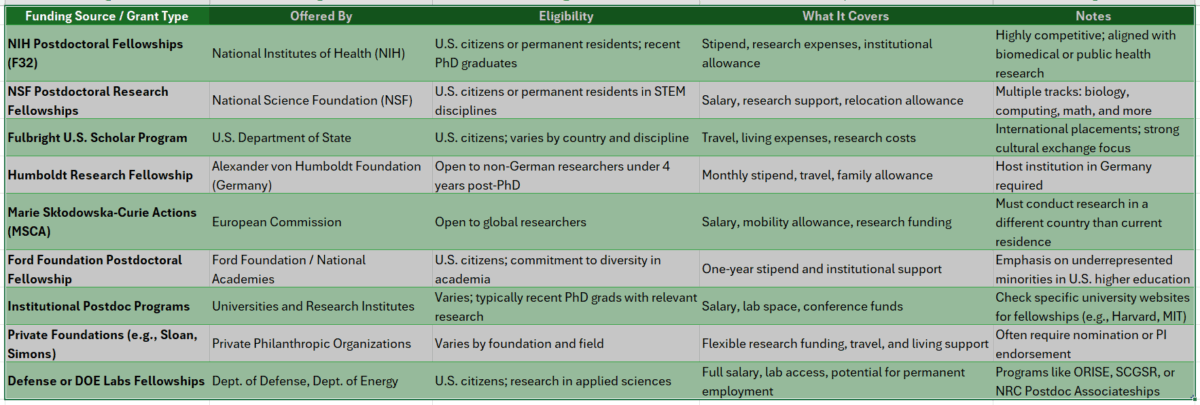Understanding what a post doctoral in education is can open doors to exciting opportunities. These programs are designed for individuals who have already completed their doctorate in mathematics education or related fields. They provide a chance to deepen research skills and contribute to the academic community.
What Is a Postdoctoral Program?
A postdoctoral program in education is a specialized training opportunity. It allows scholars to work on research projects, often in collaboration with established faculty. This experience is crucial for those looking to advance their careers in academia or research.
Key Benefits of a Postdoctoral Program
- Enhanced Research Skills: Participants gain hands-on experience in conducting advanced research.
- Networking Opportunities: These programs connect you with professionals in the field.
- Career Advancement: Completing a post doctoral in education can lead to higher positions in academia or research institutions.
In summary, a postdoctoral program in education is a valuable step for those who want to make a significant impact in their field. Whether you’re considering a doctorate in mathematics education online or in-person, this program can be a game-changer for your career.
Contact Now to Pursue Your Dream Degree From Your Nearest College
What Are the Benefits of Pursuing a Post Doctoral in Education?
Pursuing a postdoctoral program in education can be a game-changer for those looking to deepen their expertise. It’s not just about adding another title; it’s about expanding your knowledge and skills in a specialized area. This journey can open doors to exciting opportunities in research, teaching, and leadership roles.
Enhanced Expertise
One of the biggest perks of a post doctoral in education is the chance to dive deeper into your field. You can focus on specific topics, like a doctorate in mathematics education, which allows you to become a true expert. This expertise can set you apart in the job market.
Networking Opportunities
Another benefit is the chance to connect with other professionals. During your postdoctoral program, you’ll meet researchers and educators who share your interests. These connections can lead to collaborations and job opportunities that you might not find otherwise.
Career Advancement
Lastly, having a postdoctoral experience on your resume can boost your career. Employers often look for candidates with advanced training. Whether you’re aiming for a position in academia or a role in educational policy, this experience can give you a competitive edge.
How Does a Postdoctoral Program Differ from a PhD?
When exploring advanced education paths, many wonder about the differences between a postdoctoral program and a PhD. Understanding these distinctions is crucial, especially for those considering a post doctoral in education. This journey can shape your career and research opportunities significantly.
A postdoctoral program is like an advanced training phase after earning your doctorate. Here’s how it stands out:
Focus on Research
- Postdoctoral programs emphasize independent research. You’ll work on specific projects, often collaborating with established experts. This is different from a PhD, where you develop your dissertation under supervision.
- PhD programs require coursework and exams before you can dive into your research. In contrast, a postdoctoral program is all about applying what you’ve learned, especially in fields like mathematics education.
Career Advancement
- Completing a postdoctoral program can enhance your qualifications, making you more competitive for academic positions. It’s particularly beneficial for those pursuing a doctorate in mathematics education online, as it showcases your commitment to the field.
- A postdoctoral experience can lead to networking opportunities and collaborations that a traditional PhD might not offer. This can be a game-changer for your career in education.
Key Components of a Successful Postdoctoral Experience in Education
A postdoctoral program in education is an exciting opportunity for those who have completed their doctorate in mathematics education or other related fields. It allows scholars to deepen their research, gain teaching experience, and contribute to the academic community. Understanding what makes a postdoctoral experience successful can help aspiring educators make the most of this unique phase in their careers.
Mentorship and Guidance
Having a mentor is crucial. A good mentor can provide valuable insights, help navigate challenges, and open doors to new opportunities. This relationship can shape your research direction and teaching philosophy, making it a key component of your post doctoral in education journey.
Research Opportunities
Engaging in meaningful research is at the heart of a postdoctoral program. Whether you focus on innovative teaching methods or explore new educational technologies, your research can influence future practices in education. Consider how your findings can contribute to the broader field of education, especially if you’re pursuing a doctorate in mathematics education online.
Networking and Collaboration
Building a network with other educators and researchers is essential. Attend conferences, join academic groups, and collaborate on projects. These connections can lead to future job opportunities and partnerships, enriching your postdoctoral experience and enhancing your career prospects.
What Types of Research Opportunities Are Available?
Understanding what a postdoctoral program in education entails is crucial for anyone looking to advance their academic career. These programs offer unique research opportunities that can significantly impact the field of education. Whether you’re interested in a doctorate in mathematics education online or traditional routes, postdoctoral positions can help you specialize and innovate.
Postdoctoral programs in education provide various research avenues. Here are some exciting options you might explore:
- Curriculum Development: Work on creating new teaching materials that enhance learning experiences.
- Educational Technology: Investigate how digital tools can improve student engagement and outcomes.
- Policy Analysis: Study the effects of educational policies on schools and communities, helping to shape future legislation.
- Mathematics Education: If you’re pursuing a doctorate in mathematics education, you can focus on improving teaching methods and student understanding in this critical subject.
Each of these areas allows you to contribute to meaningful changes in education. By engaging in a post doctoral in education, you not only enhance your expertise but also make a lasting impact on future generations of learners.
Contact Now to Pursue Your Dream Degree From Your Nearest College
Navigating Funding and Grants for Postdoctoral Research

Navigating funding and grants for postdoctoral research is crucial for those pursuing a post doctoral in education. These programs often require financial support to explore innovative ideas and contribute to the field. Understanding how to secure funding can make a significant difference in your research journey.
Types of Funding Opportunities
- Government Grants: Many government agencies offer grants specifically for educational research. These can be competitive but are often substantial.
- University Funding: Some universities provide internal grants for postdoctoral researchers. Check with your institution for available resources.
- Private Foundations: Numerous foundations support educational initiatives. Researching these can uncover unique funding opportunities.
Tips for Securing Grants
- Start Early: Begin your search for funding as soon as you enter your postdoctoral program.
- Network: Connect with other researchers and faculty who have successfully secured funding. They can provide valuable insights.
- Tailor Your Proposal: Make sure your grant proposal aligns with the funder’s mission. This increases your chances of success.
In summary, navigating funding for a doctorate in mathematics education online or traditional programs requires diligence and strategy. With the right approach, you can secure the resources needed to advance your research.
How Can ‘CollegeDegree.Education’ Support Your Postdoctoral Journey?
A postdoctoral program in education is an exciting opportunity for those who have completed their doctorate in mathematics education or related fields. These programs allow scholars to deepen their research skills, collaborate with experienced mentors, and contribute to innovative projects. Understanding what a postdoctoral program entails can help you make informed decisions about your academic journey.
At ‘CollegeDegree.Education’, we recognize the importance of a supportive environment during your postdoctoral experience. Here’s how we can assist you:
- Expert Guidance: Our team includes seasoned professionals who can provide insights into navigating your postdoctoral path. They can help you find the right post doctoral in education opportunities that align with your goals.
- Networking Opportunities: Connect with fellow scholars and industry leaders. Building relationships can open doors to collaborations and future job prospects.
- Resources and Tools: Gain access to valuable resources, including research databases and workshops that enhance your skills in mathematics education. Whether you’re pursuing a doctorate in mathematics education online or in-person, we have tools to support your success.
Future Career Paths After Completing a Post Doctoral in Education
Completing a postdoctoral program in education can open up exciting career paths. This advanced training allows educators to deepen their expertise and contribute to the field in meaningful ways. But what exactly does this journey entail, and how can it shape your future?
Academic Positions
Many graduates pursue teaching roles at universities, where they can inspire the next generation of educators. With a post doctoral in education, you might also lead research projects or develop innovative curricula.
Research Opportunities
Postdoctoral programs often emphasize research. Graduates can work with educational institutions or organizations, focusing on improving teaching methods or learning outcomes. This is especially relevant for those interested in a doctorate in mathematics education online.
Policy and Administration Roles
Another exciting path is in educational policy or administration. With your advanced knowledge, you can influence educational practices and policies, ensuring they meet the needs of students and teachers alike. This is crucial for those who hold a doctorate in mathematics education.
Contact Now to Pursue Your Dream Degree From Your Nearest College
FAQs
1. What is a postdoctoral program in education?
It’s an advanced research opportunity for individuals who have completed a doctoral degree (Ph.D. or Ed.D.) and want to deepen their expertise in educational research, policy, or practice.
2. Who is eligible for a postdoc in education?
Applicants must hold a doctoral degree in education or a related field. Some programs may also require prior research experience or publications.
3. What areas can I specialize in during a postdoc?
Common focus areas include curriculum and instruction, educational leadership, higher education, education policy, equity in education, and learning sciences.
4. How long does a postdoctoral position typically last?
Most positions are 1 to 3 years, depending on the funding and scope of the research project.
5. What is the goal of a postdoctoral fellowship in education?
The main goal is to build a strong research portfolio, gain academic or policy-related experience, and prepare for careers in academia, research institutions, or education leadership roles.
6. Are postdoctoral positions in education funded?
Yes, most are funded through universities, research grants, or fellowships. Funding usually covers a stipend, research expenses, and sometimes benefits.
Related Blogs
- Where to Earn a Doctorate in Mathematics Education?
- Best Doctorate in Mathematics Education Online?
- Are There Fully Funded Doctoral Programs in Education?
- What Require a Jobs for Doctorate in Education?
- Best Online Doctoral Degrees in Educational Technology?
- Can You Get a Online Doctorate in Special Education?
- How to Apply for USC Doctorate in Education?
- What Can You Do With a Doctorate in Physical Education?
- What Grants for Doctoral Students in Education?
- Best Online Doctoral Programs in Early Childhood Education
- Where to Get a Doctorate in Education Programs in Georgia?
- What Is a Doctor of Education in Applied Learning Sciences?
- What Is a Doctorate in Education Curriculum and Instruction?
- Can You Get a Doctorate in Gifted Education Online?
- What Is a Doctorate in Literacy Education?


